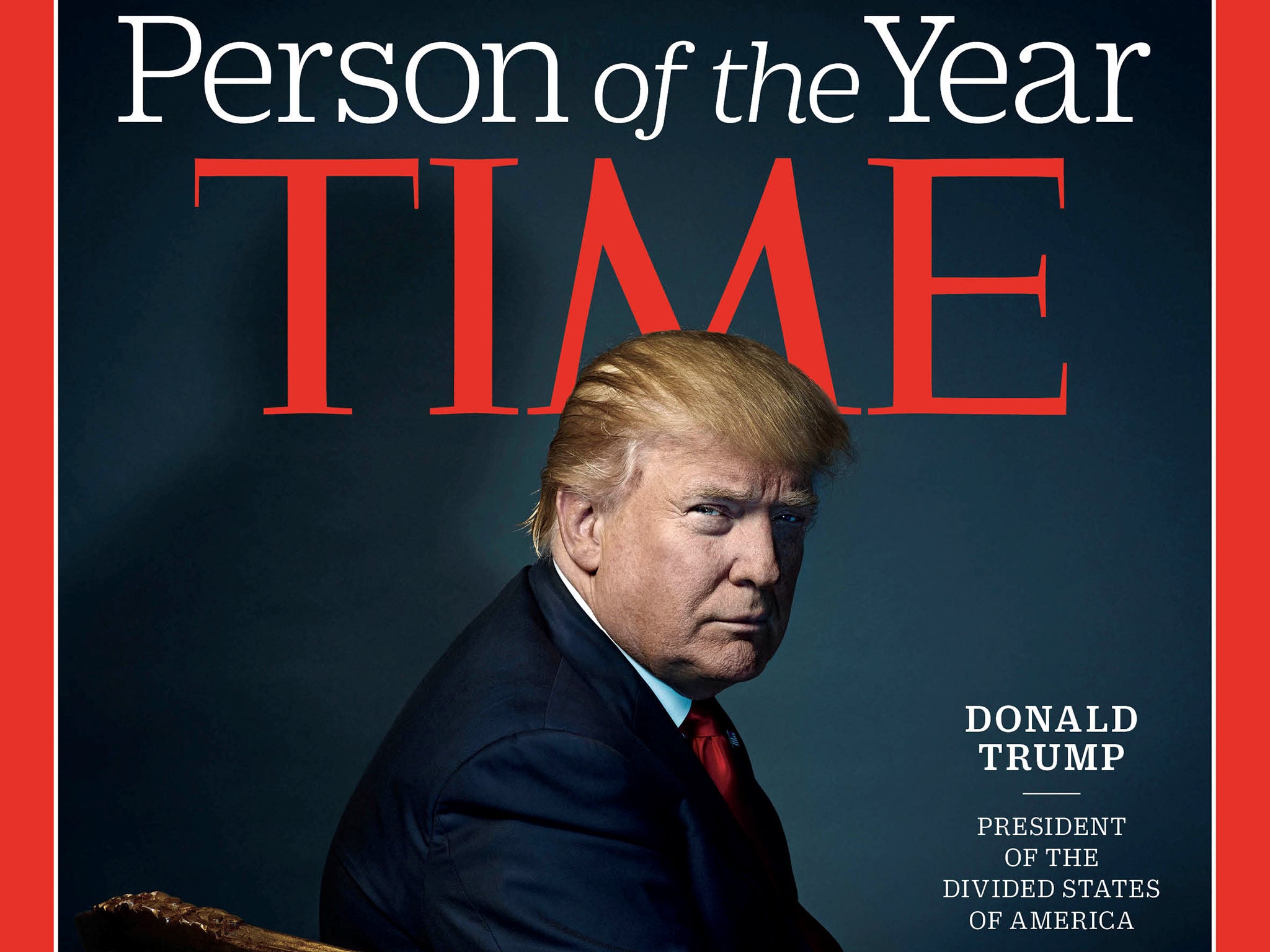Time Person of the Year is selected on the basis of power and influence, not likeability
If it was about being nice, or good, or holy, then Time’s Person of the Year would year-in, year-out be a dull run of moral philosophers, religious leaders and blameless teachers


It is difficult for anyone with a shred of sensibility to stomach, maybe, but Donald Trump’s elevation to Time Person of the Year is as inevitable and justified as it has proved controversial.
He has been – and will be – tremendously influential on his country and on the entire world. No matter that he became president-elect without winning the popular vote. No matter that he has said vile things about women. No matter that he seems to have successfully avoided paying federal taxes (“that makes me smart” being his famous riposte). Already, before he has taken the oath of office or even named his entire Cabinet, he is making his influence felt.
Only this week, possibly inadvertently, he has reversed four decades of American policy towards China, and enraged the leaders of that famously touchy superpower. He governs by tweet, he is carnally driven, and he displays bottomless contempt for Washington DC, its denizens and its habits – “drain the swamp”. And that, and the rest of the trumpery, is precisely why he is the only choice for Time Person of the Year. It is about power and influence, not likeability or morality. If it was about being nice, or good, or holy, then Time’s Person of the Year would year-in, year-out be a dull run of moral philosophers, religious leaders and blameless teachers. They all have their place but, as Josef Stalin (Man of the Year 1939) infamously inquired “how many divisions had the Pope?” Albeit two reforming popes – John XXIII in 1962 and Francis in 2013 – managed to elbow their way past the dictators and terrorists.
On any scale, Trump’s achievement is a remarkable one, an unprecedented one and, one fears, a deeply divisive one. Yet he would not be where he is without millions of people, against the odds, placing their trust in him. He did not lead a coup; he won a free election.
In fact Trump’s most credible competitor for Person of the Year 2016 would in fact be the people who voted for him to become president in the first place – The “Deplorables” might have found themselves in that glorious position, having followed the Brexit voters in the UK to spark a global peasants’ revolt against the distrusted and tired political establishment. Maybe Time would have found a more polite label for them than the one Secretary Clinton landed them with (entirely counterproductively from her own point of view): “The Left Behind”; “The American Middle Class”; “The Forgotten Americans”. Something like that. There is a good precedent too – in 1969 “The Middle Americans” who put Richard Nixon in the White House did indeed win; a vague precursor of the Trump phenomenon.
Had Hillary Rodham Clinton prevailed last month, she too would almost certainly find herself awarded the coveted title, for obvious reasons. In fact American presidents, by dint of their office rather than attractive, or otherwise, personal traits usually win the award – some more than once. Bill Clinton managed to be named Man of the Year both after his initial election in 1992, with the hope he then represented, and in 1996, with the shame he had brought upon himself and his nation (and he even had to share the prize with Ken Starr, the special prosecutor who was pursuing him to impeachment). Presidents Obama, W Bush, HW Bush, Reagan, Carter, Nixon, Johnson, Kennedy, Eisenhower, Truman and Franklin Roosevelt all have the title in common.
Last year it was Angela Merkel who won, a neat closure of the circle that saw Adolf Hitler made Man of the Year in 1938, the year of the Munich Agreement, and, at the time, a moment of great hope for “peace in our time”, rather than the base appeasement it has come to be seen as since (quote rightly). And yet if we ask ourselves in all good faith who is the most influential, powerful, indeed destructive personality of the twentieth century – the Person of the Century – Adolf Hitler has a far more obvious claim than any other of Time’s nominees such as Lech Walesa, Wallis Simpson or Walter Chrysler. Greatness, sadly, is more often than not equated with evil.

Join our commenting forum
Join thought-provoking conversations, follow other Independent readers and see their replies